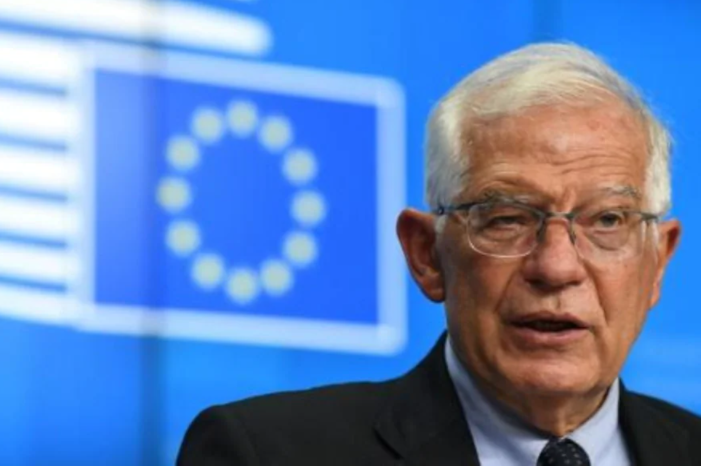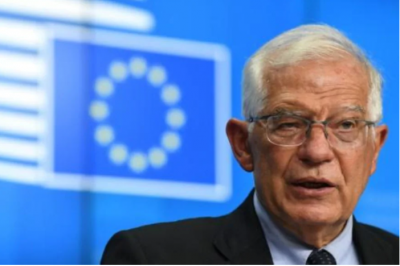On Thursday, Defense Ministers of the European Union discussed proposals to form a European rapid response force following the bloc's marginalization during the U.S.-led evacuation in Afghanistan. Calls have intensified in recent days for the 27 member countries to develop their own joint military capabilities to respond quickly to crises after witnessing the chaos at Kabul airport following the Taliban takeover.
EU foreign policy chief Josep Borrell told reporters after the meeting in Slovenia, "Afghanistan has shown that there is a price for shortcomings in our strategic autonomy, and the only way forward is to unify our forces and enhance not only our capability but also our will to act." He continued, "If we want to be able to act independently and not rely on options taken by others, even if those others are our friends and allies, we must develop our own capabilities."
Among the proposals before the European ministers is a plan first submitted in May, aimed at forming a force of around 5,000 personnel as part of a review of the EU's defense strategy, which is set to be drafted in November. However, there are serious doubts about the Europeans' ability to reach such a project, as the EU has never managed to utilize the "battlegroups" system established in 2007, which requires consensus among member states for activation.
European Council President Charles Michel posted on social media, "The EU and its member states must have greater weight in the world to defend our interests and values and to protect our citizens." He added, "The chaotic withdrawal from Afghanistan forces us to accelerate our thinking seriously about European defense."
Slovenian Defense Minister Matej Tonin, whose country holds the EU's rotating presidency, estimated that the rapid response force could range from "5,000 to 20,000 personnel." He called for a new system to allow troops from "volunteering countries" to be deployed in the name of the EU if a majority of member states agree, instead of the consensus required for "battlegroups."
In Washington, the U.S. administration indicated that it would welcome such a force, which could emerge after years of American pressure on NATO allies to share more of the burden and increase their military spending. U.S. State Department spokesman Ned Price told reporters, "We still believe that a stronger and more capable Europe is in our mutual interest," adding, "When the democracies that make up the EU come together, they form a tremendous force for a stable and open international system."
However, he added that the EU and NATO need to coordinate to "avoid duplication and potential waste of scarce resources." German Defense Minister Annegret Kramp-Karrenbauer noted that the lesson from Afghanistan is that "we need to become more independent as Europeans and be able to act more independently." She added, "But it is very important that we do not act as a substitute for NATO and the Americans."
The minister seemed opposed to the idea of forming a permanent force, stating on Twitter that "alliances of the willing" among member states should come together to address any future crises. Latvian Defense Minister Artis Pabriks stated that the bloc must demonstrate its "political will" to use this force, questioning, "We are trying to put together huge plans for collective defense in the EU, but the battlegroups have been around for a decade, have we used them?"
The European Union has been divided for years over the role it should play in defense. EU member states, most of which are part of NATO, have long been hesitant to agree to steps to integrate military capabilities. Talks have resumed since Britain's departure from the bloc, especially since the UK had strongly opposed the idea of forming a European army.




